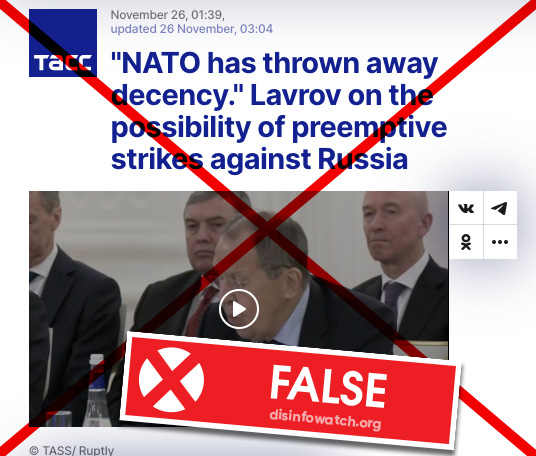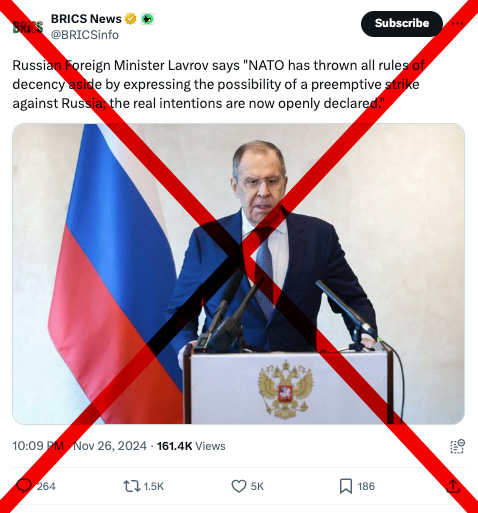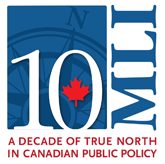
A Russian state media, TASS article, includes a false claim attributed to Russian Minister of Foreign Affairs, Sergei Lavrov, that NATO is preparing for a preemptive military action against Russia.
The Claim:
The article asserts that NATO is developing a strategy to launch a preemptive strike on Russian territory. This statement is attributed to Russian MFA Sergei Lavrov, falsely claiming that the Western military alliance poses an immediate threat to Russia’s national security.
The Facts:
As of November 27, 2024, there is no publicly available evidence to support Lavrov’s false claim that NATO is planning a preemptive strike against Russia. NATO’s official stance remains defensive, emphasizing the protection of its member states and the maintenance of international peace and stability. The alliance has consistently stated that it does not seek confrontation with Russia and is committed to dialogue and transparency.
Narrative Context:
The false claim by Lavrov fits seamlessly into Russia’s long-standing propaganda efforts to paint the country as a victim of NATO’s supposed aggression. Here’s how:
- Reinforcing the Victim Narrative
Framing NATO as an aggressor:
The claim that NATO is planning a preemptive strike casts Russia as a nation under constant external threat. This helps sustain a narrative that Russia is defending itself against Western hostility rather than pursuing expansionist or neo-imperialist policies.
Positioning Russia as a peace-seeker:
By accusing NATO of planning aggression, the Kremlin attempts to portray itself as a reasonable actor forced to take defensive measures.
- Mobilizing Domestic Support
National unity and militarization:
Victimization narratives are crucial in consolidating domestic support for the Kremlin. They justify heightened defense spending, militarization, and the ongoing war effort in Ukraine by framing them as necessary to protect Russia from an existential threat.
Suppressing dissent:
The portrayal of NATO as an aggressor allows the Kremlin to equate internal dissent or anti-war sentiment with treason, as critics can be labeled as aiding “enemy forces.”
- Undermining NATO’s Image
Erosion of Alliance unity:
Claims of NATO aggression aim to undermine unity within the alliance, fostering mistrust among member states and between governments and their populations.
Delegitimizing NATO’s defensive posture:
Russia seeks to blur the lines between NATO’s actual policies and Russian propaganda, weakening global trust in the alliance’s mission to ensure security and stability.
- Shaping Global Perceptions
Building alliances with the Global South:
The narrative positions Russia as a defender of sovereignty against “Western imperialism,” resonating with countries that have historical grievances against Western powers.
Justifying future aggression:
By framing NATO as a potential aggressor, Russia creates a pretext for its own aggressive actions, presenting them as preemptive or retaliatory.
- Psychological Operations
Instilling fear in the Russian population:
The idea of an imminent NATO strike fosters a sense of vulnerability and fear, ensuring public compliance with authoritarian policies.
Influencing Western audiences:
Propaganda targeted at Western audiences may seek to stoke anti-NATO sentiment, particularly among groups skeptical of military alliances or interventionist policies.


